Carl-Herman Tillhagen | |
|---|---|
| Born | 17 December 1906 |
| Died | 28 May 2002 |
Carl-Herman Tillhagen (17 December 1906 - 28 May 2002) was a Swedish folklorist [1] and ethnologist who did extensive research on Scandinavian folklore.
Carl-Herman Tillhagen | |
|---|---|
| Born | 17 December 1906 |
| Died | 28 May 2002 |
Carl-Herman Tillhagen (17 December 1906 - 28 May 2002) was a Swedish folklorist [1] and ethnologist who did extensive research on Scandinavian folklore.
He was born on 17 December 1906 in Sundsvall, Sweden. From 1932 to 1936 Tillhagen studied at Uppsala University. He continued his studies at Stockholm University until 1943, and until 1960 in Oslo where he received his doctorate. In 1939 he was employed by Nordiska museet, where he was a curator from 1961 to 1972.
In 1954 he was employed for a study of the Romani people. He was even on the board of directors in the International Society for Folk Narrative Research. In 1966 he was guest professor at Indiana University and University of California.

Alva Myrdal was a Swedish sociologist, diplomat and politician. She was a prominent leader of the disarmament movement. She, along with Alfonso García Robles, received the Nobel Peace Prize in 1982. She married Gunnar Myrdal in 1924; he received the Nobel Memorial Prize in Economic Sciences in 1974, making them the sixth ever married couple to have won Nobel Prizes, and the first to win independent of each other.

Rut Birgitta Dahl is a Swedish former politician of the Social Democratic Party. Dahl was a Member of Parliament from 1969 to 2002. She served as Minister for Energy from 1982 to 1990, as Minister for the Environment from 1986 to 1991, and as Speaker of the Parliament from 1994 to 2002. She was the chairman of the Swedish section of the United Nations Children's Fund (UNICEF) between 2005 and 2011.

Lauritz Ulrik Absalon Weibull was a Swedish professor and historian.

The Institute for Language and Folklore, is a Swedish government agency with the purpose of studying and collecting materials concerning dialects, folklore and onomastics.

Olof Gustaf Hugo Lagercrantz was a Swedish writer, critic, literary scholar and publicist.
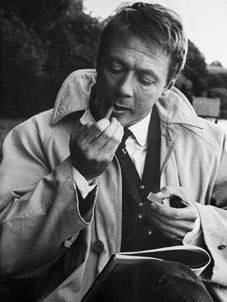
Johan Allan Edwall was a Swedish actor, director, author, composer and singer, best-known outside Sweden for the small roles he played in some of Ingmar Bergman's films, such as Fanny and Alexander (1982). He found his largest audience in the Scandinavian countries for playing lovable characters in several of the film and TV adaptations of the children's stories by Astrid Lindgren. He attended Stockholm's Royal Dramatic Training Academy from 1949 to 1952. During his long career he appeared in over 400 works. At the 10th Guldbagge Awards in 1974, he won the award for Best Actor for his role in Emil and the Piglet.

General Bo Torsten Rapp was a senior Swedish Air Force officer. Rapp started as a naval officer in 1926 before transferring to the Swedish Air Force in 1928. Over the years, he steadily climbed the ranks, serving in various roles and completing training courses. Notable milestones include becoming a lieutenant colonel in 1944 and commanding the Blekinge Wing in 1944. He later assumed important positions such as Vice Chief of the Air Staff and Chief of the Air Force, contributing to significant reforms in Swedish defense, including improved inter-service coordination. Rapp eventually became the Supreme Commander of the Swedish Armed Forces in 1961, a position he held until 1970, overseeing substantial changes in military organization. After retiring from active duty, he continued his service in the Swedish Air Force reserve until 1981.
Erik Filip Lundberg was a Swedish economist, born in Stockholm. He was a professor of political economics at Stockholm University and a member of the Stockholm School of economic thought. He was president of the International Economic Association from 1968 to 1971. From 1969 to 1979, he was a member of the committee that selects the laureates for the Sveriges Riksbank Prize in Economic Sciences, the Economics Prize Committee, and served as the committee's chairman from 1975 to 1979.
Swedish folk music is a genre of music based largely on folkloric collection work that began in the early 19th century in Sweden. The primary instrument of Swedish folk music is the fiddle. Another common instrument, unique to Swedish traditions, is the nyckelharpa. Most Swedish instrumental folk music is dance music; the signature music and dance form within Swedish folk music is the polska. Vocal and instrumental traditions in Sweden have tended to share tunes historically, though they have been performed separately. Beginning with the folk music revival of the 1970s, vocalists and instrumentalists have also begun to perform together in folk music ensembles.
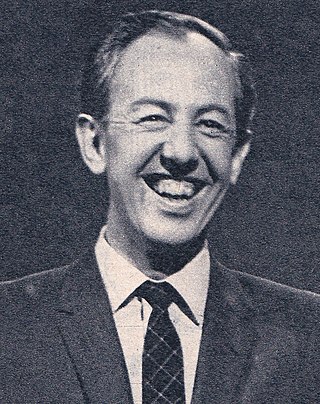
Bengt Walter Feldreich was a Swedish radio and television journalist, television presenter and producer. He worked in public service between 1950 until 1985, well-known for the interview roundtable programme "Snillen spekulerar" on SVT, as well as narrating the annual Christmas Eve broadcasts from the same channel.
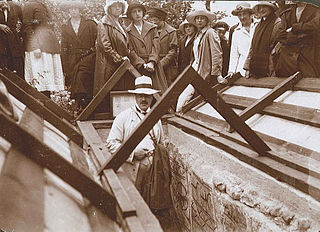
Carl Wilhelm von Sydow was a Swedish folklore scholar. A professor at Lund University, he was a pioneer of folklore studies in Sweden and contributed to establishing systematic methods in the field.

Fritz-Olof Thunberg was a Swedish actor, perhaps best known as the voice of the cartoon character Bamse.
Sveriges Radio's Christmas Calendar is an annual series of pre-Christmas children's programmes produced and broadcast by Sveriges Radio in the form of a radio advent calendar. The first series – entitled Barnens adventskalender – was broadcast in 1957.

The Skogsrå, Skogsfrun, Skogssnuvan, Skogsnymfen, Råndan or Huldran, is a mythical female creature of the forest in Swedish folklore.
Ernst Åke Kromnow was a Swedish archivist, historian and civil servant. He was National Archivist and head of the National Archives of Sweden from 1965 to 1979.
Wendela Beata Losman is a Swedish historian and archivist.
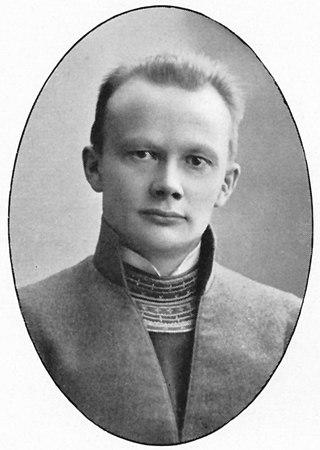
Torkel Tomasson was a Sámi newspaper editor and public figure who worked to promote Sámi identity and rights.
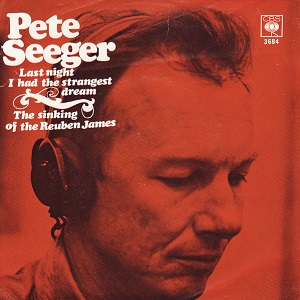
"Last Night I Had the Strangest Dream" is a song written by American folk singer-songwriter Ed McCurdy in 1950. Due to McCurdy's connection with fellow musicians, it was common in repertoires within the folk music community. The song had its first album release when Pete Seeger recorded it as "Strangest Dream" for his 1956 album Love Songs For Friends & Foes. Seeger would later re-visit the song for his 1967 album Waist Deep in the Big Muddy and other Love Songs. The strong anti-war theme of the song led it to be recorded by multiple other artists, including The Weavers (1960), Joan Baez (1962), The Kingston Trio (1963), Simon & Garfunkel (1964), and Johnny Cash who released two versions of the song during the 2000s.
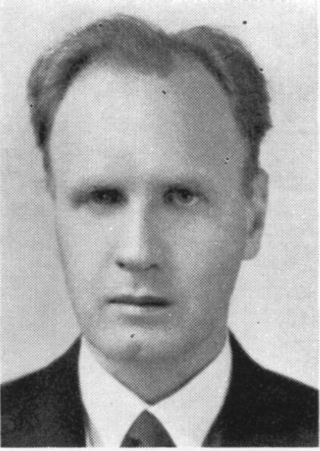
Dag Alvar Strömbäck was a Swedish folklorist, historian of religion and philologist. He was a professor at Uppsala University and also headed the Swedish Institute for Language and Folklore at Uppsala.
Anna "Anta" Birgitta Rooth was the first Swedish professor of ethnology at Uppsala University. She is known for her research into folklore, especially the Cinderella story.
{{cite web}}: CS1 maint: archived copy as title (link)